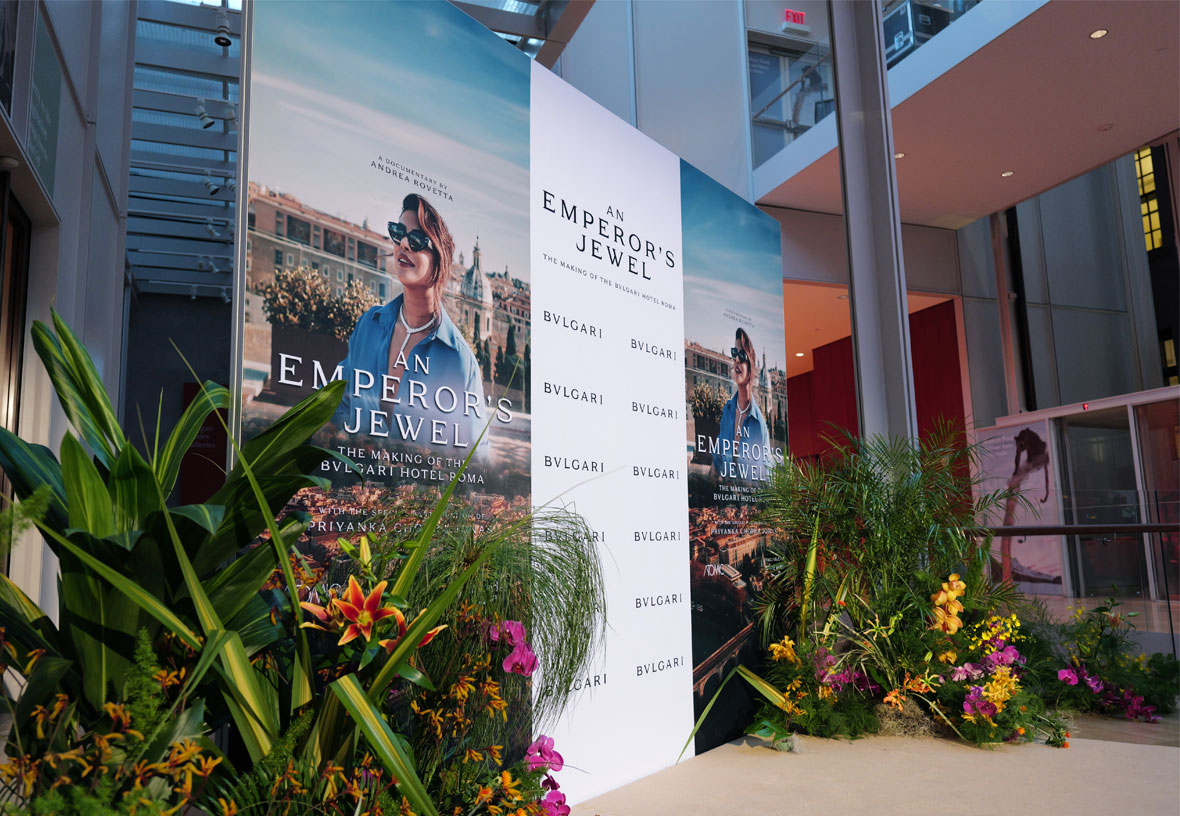We care about your privacy. We attempt to limit our use of cookies to those that help improve our site. By continuing to use this site, you agree to the use of cookies. To learn more about cookies see our Privacy Policy.
The Farm Report Showcases the Future of Urban Farming in New York
Featuring two innovative companies bringing sustainable farming to New York
Last weekend during the 2nd Annual Brooklyn Podcast Festival, Industry City co-working space Camp David played host to a special podcast series focusing on ‘Smart Cities’ and the people creating innovative solutions to improve urban lifestyle. While the entire day was an enlightening look at how technology is adding to urban infrastructure, one of the events that was most pertinent to us was a conversation about how urban farmers are improving the way we source and consume produce. Moderated by The Farm Report’s Lisa Held, the panel featured Brooklyn Grange co-founder Anastasia Cole Plakias and Gotham Greens co-founder Viraj Puri, both speaking about the different ways their companies are changing the way we interact with produce in New York.
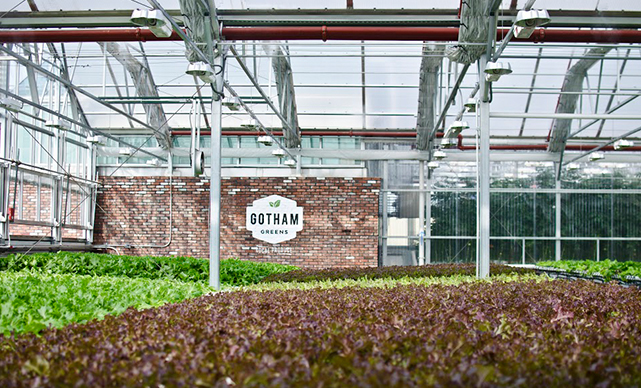
[Gotham Greens]
Gotham Greens might be recognizable to New Yorkers, as its leafy greens have found their way to many supermarkets and grocery stores in and around the city. It was founded in 2011 with the goal of using greenhouses and hydroponic farming to create fresh produce year-round and bring it directly to consumers as Puri describes:
“The genesis of this business was to address this supply chain, this commodity supply chain of produce that really starts in a couple of counties in California and Arizona that grow like 98 percent of the domestic leafy greens in the county, and all of that produce has to be shipped across the country to reach consumers on the East Coast. It’s a very difficult supply chain, there’s a lot of wastage, there’s a lot of middle men along the way, and ultimately consumers here on the east coast get an inferior quality product that isn’t as nutritious, isn’t as fresh. Greenhouses, specifically hydroponic greenhouses, we feel are a really good solution to grow high quality produce efficiently in urban areas where we don’t have a lot of arable land or good fertile soil.”
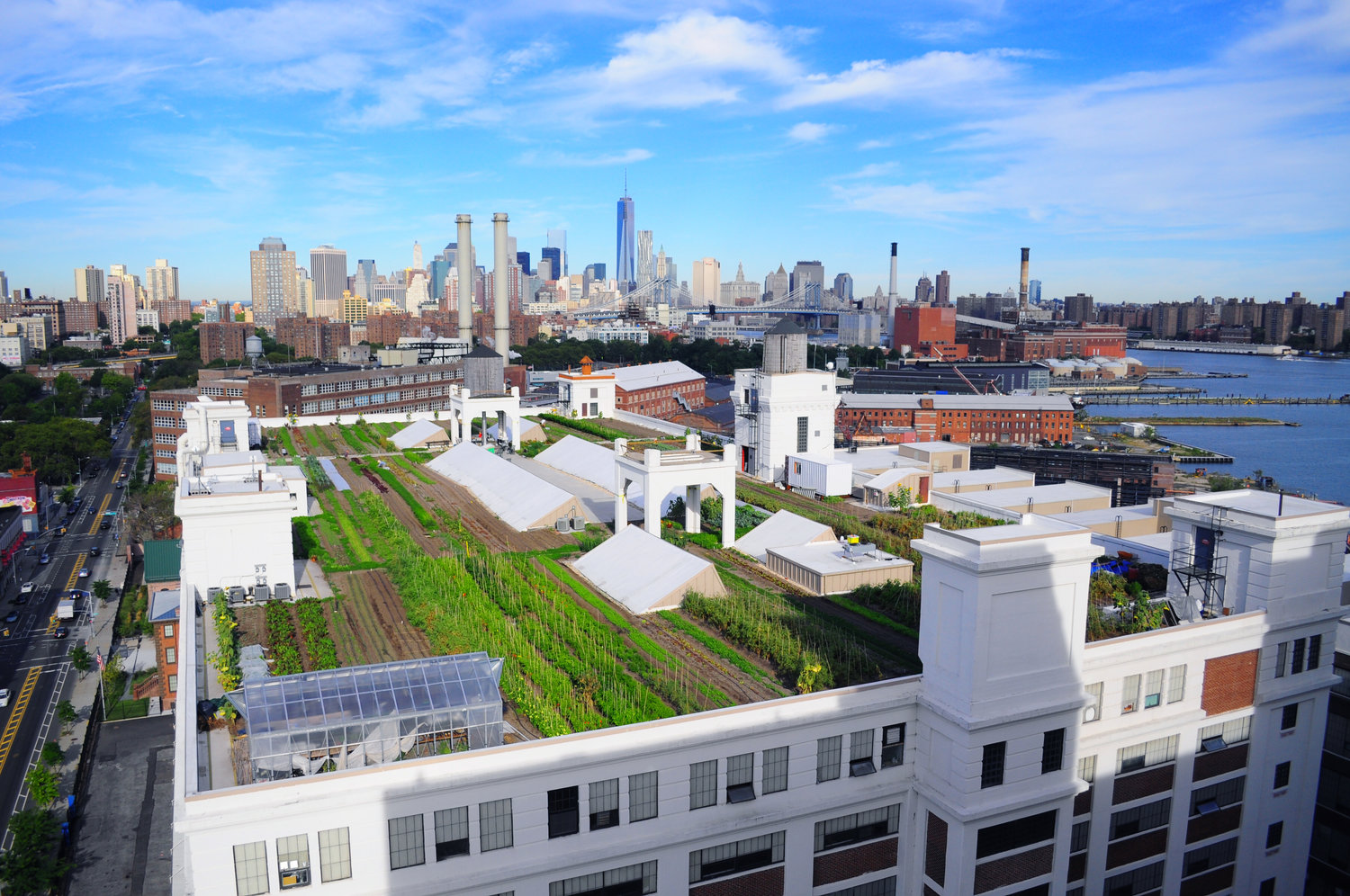
[Brooklyn Grange – Brooklyn Navy Yard]
Brooklyn Grange began in 2010 by a few people who had a vision for a greener city. Here traditional soil farming is the focus, but it also serves as a consultancy, helping cities develop green spaces, as well as an event space hosting everything from fermenting workshops to yoga classes to weddings. As Plakias explains, Brooklyn Grange brings a different outlook to urban farming:
“Brooklyn Grange is a different model, we grow in soil, and so we’re largely a seasonal business, we do grow in greenhouses through the winter somewhat, but really we’re a soil based farming operation that also offers events and programming, and design build services. So we design, build, install, and sometimes maintain green spaces for clients in New York cities and sometimes consult on projects all over the world, and we do this because we really believe that cities in 2019 sorely need green space and we believe that soil based urban farming has the capacity to monetize the creation and maintenance of green spaces that cities really, truly need in this day and age. So we’re as much about green infrastructure as we are about food production.”
These companies have both brought something that was once inconceivable to one of the most challenging urban environments in the world. In doing so, they have provided New Yorkers with access to fresh food, but Viroj sees it as much more than that:
“It’s making our cities a little bit more green, making them more livable, improving the built environment, there’s real tangible ecosystem services around reducing the heat island effect, and capturing storm water.
But also just connecting youngsters, and urban residents to food, when kids and adults alike, walk into our greenhouse or your farm, and they see a tomato growing out of a flower, or a cucumber in a bud, their minds are blown about how food is grown because they’re used to just buying produce in a supermarket or seen at a restaurant at best. And in economically distressed neighborhoods where most of the food comes from corner stores and there’s this dearth of grocery stores selling produce, it’s really staggering how few people in some communities have even been around fresh produce. I think those are the powerful benefits of urban farming, it’s not just food production, but it’s all these other themes that we can address.”
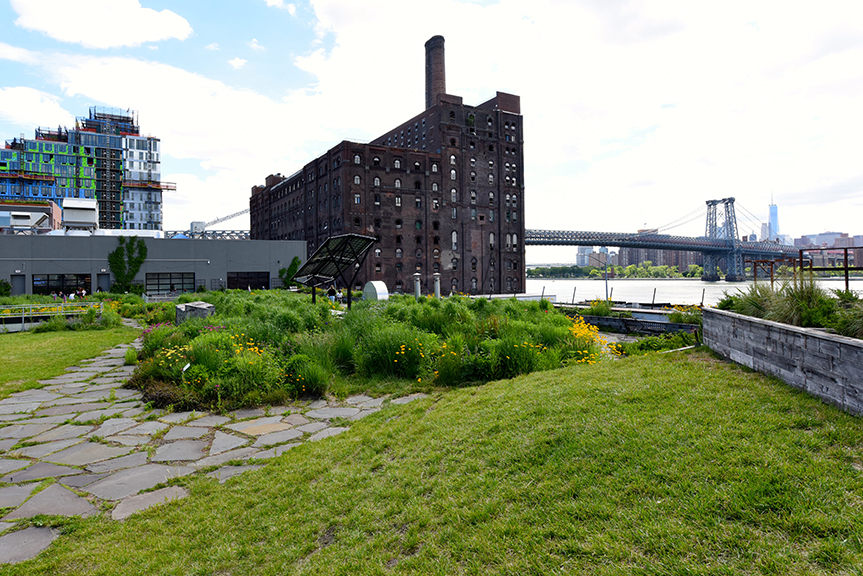
[Brooklyn Grange – Design for Vice Media]
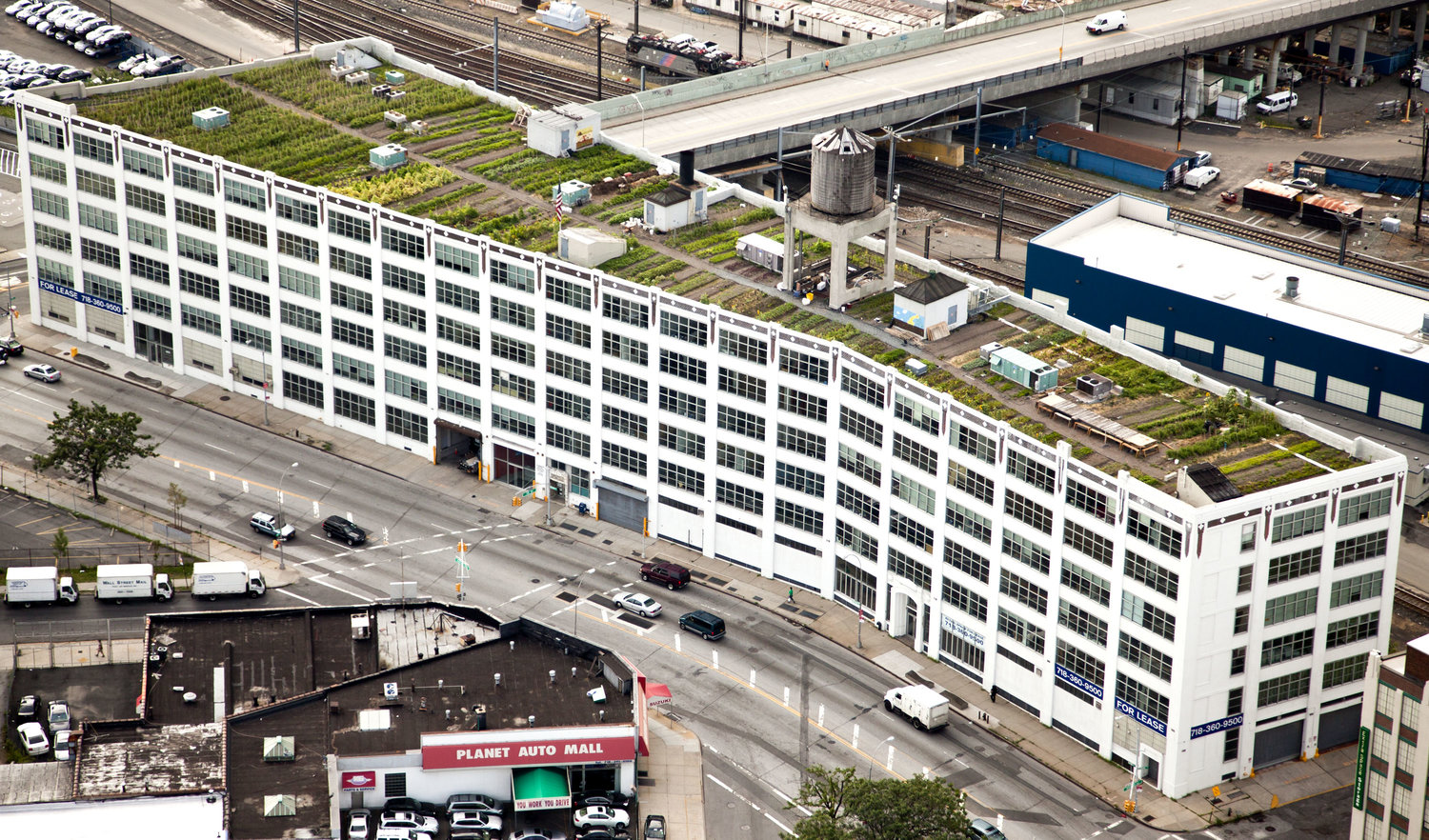
[Brooklyn Grange – Long Island City]
Share this Story
More Culture
Burberry Checks Into The Newt
The fashion-hospitality affair continues in the English countryside
tell me more ›Il Pellicano’s Enduring Allure
60 years of cliffside luxury, timeless style, and a spirit you can’t quite put into words
tell me more ›Bulgari Hotels Screens “An Emperor’s Jewel – The Making of The Bvlgari Hotel Roma” in NYC
Hoteliers, artists, designers, and media came together for a special screening of "An Emperor’s Jewel – The Making of The Bvlgari Hotel Roma” at the exquisite Morgan Library in New York City
tell me more ›“Becoming Familiar” Is The Experience To See and Touch at Design Miami 2023
LA Based Raise the Moral Studio Sensory Art Objects Win Best Curio Presentation at Design Miami 2023
tell me more ›


